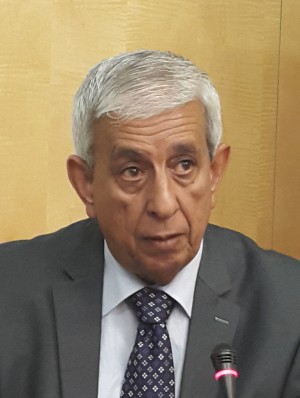By Libya Herald rporter.

Tunis, 27 November 2017:
Mustafa Al-Salihin Mohammed El-Huni, one of the leaders of the National Transitional Council (NTC) during and after the 2011 revolution, died today in Madrid where he was undergoing treatment. He had been ill for some time.
An economist, educated in both Libya and the US, he was first deputy president of the NTC and in charge of its oil, finance and economic affairs. Prior to the revolution, he was senior economic and financial advisor to the Libyan National Economic Development Board and senior economic advisor to the National Oil Corporation. He was also professor of economics at both the Western Mountain University in Gharyan and the Academy of Higher Studies in Tripoli.
Two years ago, his was one of 12 names proposed by the House of Representatives to the Libya Dialogue team for the post of prime minister or deputy prime minister.
Widely respected, he firmly believed that, since 2011, Libya was being used as a proxy battleground by other countries in the region which were exploiting and exacerbating Libyan divisions for their own interests.
He also believed that rebuilding Libya required not only national reconciliation and comprehensive security measures (and if necessary help from outside) but also wholesale economic reform as well as investment to repair the country’s infrastructure and create jobs for young people.
A pragmatist, he was opposed to the Muslim Brotherhood as well as other more radical Islamist groupings because of their plans to incorporate the country into a wider Islamic state. But he also believed that Islam had to be given a place in public affairs. He also believed that there had to be reconciliation with the vast majority of those who had supported the Qaddafi regime. The new Libya, he said, had to be as inclusive as possible.
He had hoped to organise a national conference on reconciliation before he became ill.






